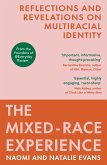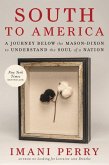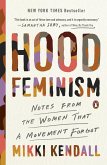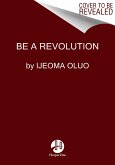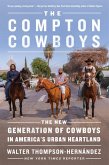Afua Hirsch, daughter of an Englishman of German-Jewish descent and a Ghanaian mother, grew up in Wimbledon in rather affluent and educated surroundings. Her skin colour did not really matter when she was a kid, but growing up, she became more and more aware of the fact that she does not really
belong: she isn’t white as the others and she isn’t black either. Being “mixed” did not double her…mehrAfua Hirsch, daughter of an Englishman of German-Jewish descent and a Ghanaian mother, grew up in Wimbledon in rather affluent and educated surroundings. Her skin colour did not really matter when she was a kid, but growing up, she became more and more aware of the fact that she does not really belong: she isn’t white as the others and she isn’t black either. Being “mixed” did not double her identity but create a gap. For years she has been searching for her identity, for a place of belonging. “Brit(ish)” is the result of this process and a sharp analysis of what “black” and “white” actually mean in Britain.
I found Afua Hirsch’s book quite informative and interesting. She creates an easily readable mixture of a personal report, her feelings and experiences, combined with journalistic facts and figures which underline and support her theories. Thus the book gives you a deep insight in this highly complex and definitely neglected topic.
Afua Hirsch addresses several aspects which reflect the concept of “otherness” pretty well, amongst them origins, bodies and places. The simple question “where are you from” becomes highly difficult if you feel like being British but are perceived as being different and foreign. It becomes even more complicated when you go to another country, in Afua Hirsch’s case Senegal, where you are identified as absolutely British. The sense of not belonging to either group makes it especially hard to build an identity. Added to this a cultural attributions society makes to certain groups, e.g. the black being uneducated and criminals – which might run counter to one’s own perception. Afua Hirsch describes it as
“a permanent and constant consciousness of feeling at odds with my surroundings, of being defined by skin, hair, an unpronounceable name, and the vague fact of a murky background from a place that was synonymous with barbarity and wretchedness, I was that awkward, highly noticeable outsider (...), everywhere.”
The examples she provides of what happened to black people in Britain are stunning, we as Europeans like to believe that we are less prejudiced, more open-minded and “colourblind”, particularly in comparison to the USA, but reality tells a different story. In Britain, the concept of class adds to the racial differences and complicates the situation even more.
What I personally found most interesting was the contrast between the American blacks and the British. How they identify themselves, how they bond and develop a kind of group identity or sense of belonging overseas whereas the British never became a common group since they did not share an experience like segregation in the US.
Even though the book is neither journalistically neutral nor a pure personal report, it is absolutely worth reading to get an impression of the topic. I would absolutely agree that there is a white spot on black British history which needs to be filled.



